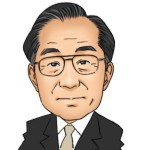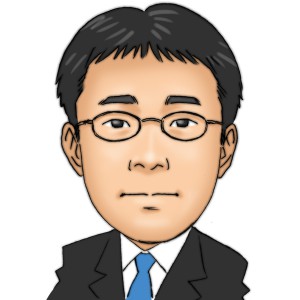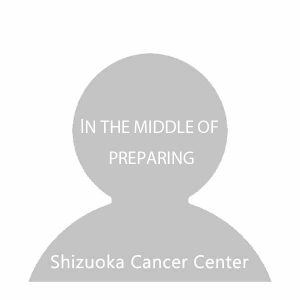 |
 |
 |
 |
 |
| Chief Tetsumi Sato, M.D., Ph.D. |
Deputy Chief Shigeki Ono, M.D. |
Clinical Advisor Isamu Adachi, M.D., Ph.D. |
Senior Staff Taiichi Kawamura, M.D., Ph.D. |
Senior Staff Akira Fukutomi, M.D. |
 |
 |
 |
||
| Senior Staff Yurika Ishikawa, M.D. |
Senior Staff |
Tsuyoshi Takazawa, M.D. |
Cancer patients and their families often suffer from worries about treatments, physical pains, mental distresses, and hardships of life at all the stages of the disease. Physical pains can be treated with supportive care provided at relevant clinical departments, but when the symptoms have progressed or the supportive care is not proven as effective enough, and when special attention is required for mental aspects, the Division of Palliative Medicine will provide the patients with palliative care. At this division, a multidisciplinary team consisting of doctor specializing in palliative medicine, psychotherapists, pharmacists, nurses, and medical social workers will provide palliative care working in cooperation with each other to reduce the patients' agonies.
A cancer patient suffers from various afflictions including physical pain and mental distress arising from an anxiety about the disease. Palliative care may give an impression that it is for the terminal phase only, but in reality, it is needed for every stage of a cancer treatment, because a cancer patient often suffers from nausea as a side effect from anti-cancer drugs or aching pains after a surgery. Therefore, a “palliative care team,” consisting of specialists in various fields including doctors (from the Divisions of Palliative Medicine and Psycho-Oncology), nurses, pharmacists, psychotherapists, and medical social workers is formed for a patient to reduce his/her afflictions when he/she is admitted to the general ward. When the patient needs palliative care while hospitalizing in the general ward, the primary doctor at the relevant clinical division requests the intervention by the palliative care team. So far, more than 600 patients a year receive supports by the palliative care team while they continue having their cancer treatments at the relevant clinical divisions. When you wish to take professional palliative care (including symptom relief) provided by the palliative care team, please do not hesitate to inquire with your primary doctor, ward nurses, or pharmacists.
At the SCC, there are two “palliative care wards (the west wing on the 4th floor and the palliative care annex)” where palliative care is provided intensively. At the palliative care wards, a doctor specializing in palliative care takes a leadership role to coordinate various staff including nurses, pharmacists, and psychotherapists in providing the patient and his/her family with the treatment and care. When the doctor realizes the need for the symptom relief and the benefit for the patient, he/she will be willing to incorporate radiation therapy, nerve block, or IVR into the care when it goes with the wishes of the patient and his/her family. Altogether, the number of beds in the wards is 50, which is one of the biggest among all the core hospitals/cooperation system for cancer medicine in Japan. More than 500 patients a year are admitted to the wards for various reasons, from short-term hospitalization for symptom relief to terminal care. When a patient on home care needs to be hospitalized due to the progression of the symptoms, we will make our utmost efforts to let him/her in promptly. In principle, the patient will have to be admitted to the general ward for the relevant clinical division once, then he/she will be referred to the palliative care ward in a sequential order among all the patients who wish to be hospitalized there. In case the patient has been discharged from the Palliative Care Ward once, he/she will directly be brought back there from home as an emergency hospitalization.
* Please note that patients taking cancer treatments at other medical institutions can also be admitted to the palliative care wards at the SCC, but they will need to come here as the outpatients first and have consultations with the doctors at the Division of Palliative Medicine.
When a patient is physically able to come to the SCC to pay regular visits there, he/she will be taken care of as an outpatient. In addition to palliative care to reduce pains, he/she will be able to get advices on life in general and on where to go for further care in the future. Also, there is a consultation window for the patients taking cancer treatments at other hospitals or clinics, and they can receive symptom relief care as the outpatients at the SCC. There is also the nerve block outpatient clinic (open every Tuesday afternoon only) for when nerve block is adaptable for cancer pain.
We provide nerve block therapy for cancer pains in a proactive way. The palliative care team handles the therapy for inpatients, while we allocate every Tuesday afternoon for outpatients and patients coming from other medical institutions and let them receive the nerve block therapy at the outpatient clinic. For making an appointment for the therapy, an outpatient will need to bring a letter of introduction issued by his/her primary doctor at the relevant clinical division or at the medical institution for his/her cancer treatment. When you wish to receive the nerve block therapy for relieving the pains, please ask the primary doctor at the clinical division or the medical institution where you are taking the cancer treatment to issue one.
Following is the list of the nerve block therapies provided at the Division of Palliative Medicine at the Shizuoka Cancer Center;
① Splanchnic nerve neurolysis for visceral pain in the upper abdomen or a pain from enlarged para-abdominal aortic lymph node.
② Superior hypogastric plexus neurolysis for a visceral pain in pelvis.
③ Caudal epidural ethanol injection for a pain in the anal region or the perineal region.
④ Others (i.e., nerve root block, continuous intrathecal analgesia, etc.)
The Division of Palliative Medicine at the SCC has established the “regional palliative care cooperation system” involving other medical institutions mainly in the eastern region of Shizuoka Prefecture. When a patient on home care has an acute condition progression or an acute onset of aching pain, he/she will be able to be admitted to a nearest medical institution for the symptom relief first, and then be moved to the palliative care ward at the SCC when the condition becomes stable enough. The patient who wishes to be admitted to the palliative care ward at the SCC, he/she will need to come to the Division of Palliative Medicine as an outpatient beforehand and take the medical consultation there.
If you wish to take palliative care at the SCC, please click here to learn more about it.
There are many ways to reduce pains. We, the staff at the Division of Palliative Medicine, try to do our best, taking advantages of our expertise and skills, to provide treatments and care for the patients with afflictions so that they will feel better even if only slightly. We take pride in the treatments and care we provide at this division as one of the best in Japan. When you have unbearable pains or distresses, please do not hesitate to tell your doctors or nurses so.
palliative medicine
pain clinic
Certified Doctor, the Japanese Society for Palliative Medicine
Specialist Certified by the Japan Society of Pain Clinicians
The Japanese Society of Anesthesiologists
The Japanese Association for Clinical Research on Death and Dying
general internal medicine
Certified Doctor, the Japanese Society of Internal Medicine
palliative medicine
clinical oncology
Honorary Member, the Japanese Society for Palliative Medicine
Education and Training Committee Member, the Japanese Association for Clinical Research on Death and Dying
Certified Doctor, the Japanese Society of Internal Medicine
Specialist Certified by the Japan Society for Oriental Medicine
Honorary Member, the Japanese Breast Cancer Society
gastroenterological surgery (specifically surgical treatment for gastric cancer)
Specialist Certified by the Japan Surgical Society
Certified Doctor for Gastroenterological Cancer and Specialist, the Japanese Society of Gastroenterological Surgery
chemotherapy for gastroenterological cancer (specifically pancreas cancer and biliary tract cancer)
The Japanese Society of Internal Medicine
The Japan Gastroenterological Endoscopy Society
The Japanese Society of Gastroenterology
The Japanese Society of Medical Oncology
The Japan Pancreas Society
palliative medicine
Supervisory Doctor Certified by the Japanese Society of Palliative Medicine
Registered Surgeon Certified by the Japan Surgical Society
General Clinical Oncologist Certified by the Japanese Board of Cancer Therapy
The Japanese Association for Clinical Research on Death and Dying
respiratory medicine
The Japanese Society of Palliative Medicine
The Japanese Respiratory Society
The Japanese Society of Allergology
The Japan Asthma Society
Specialist Certified by the Japanese Society of Internal Medicine
Industrial Doctor Certified by the Japan Medical Association
palliative medicine
The Japanese Society for Palliative Medicine
The Japan Radiological Society
The Japan Society for Radiation Oncology